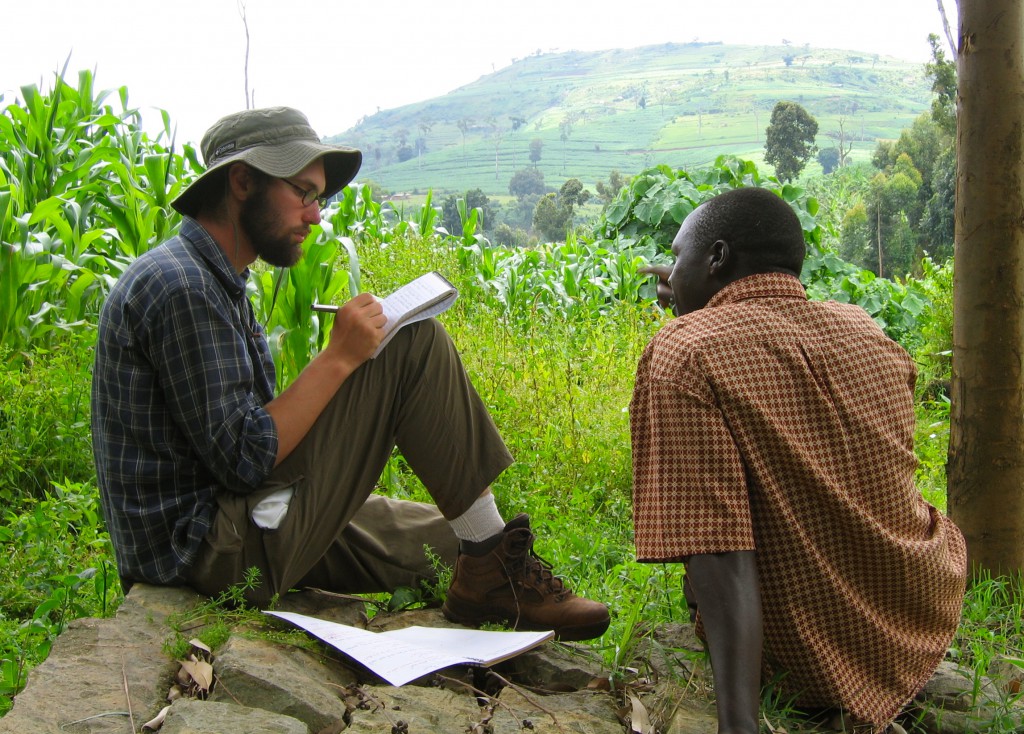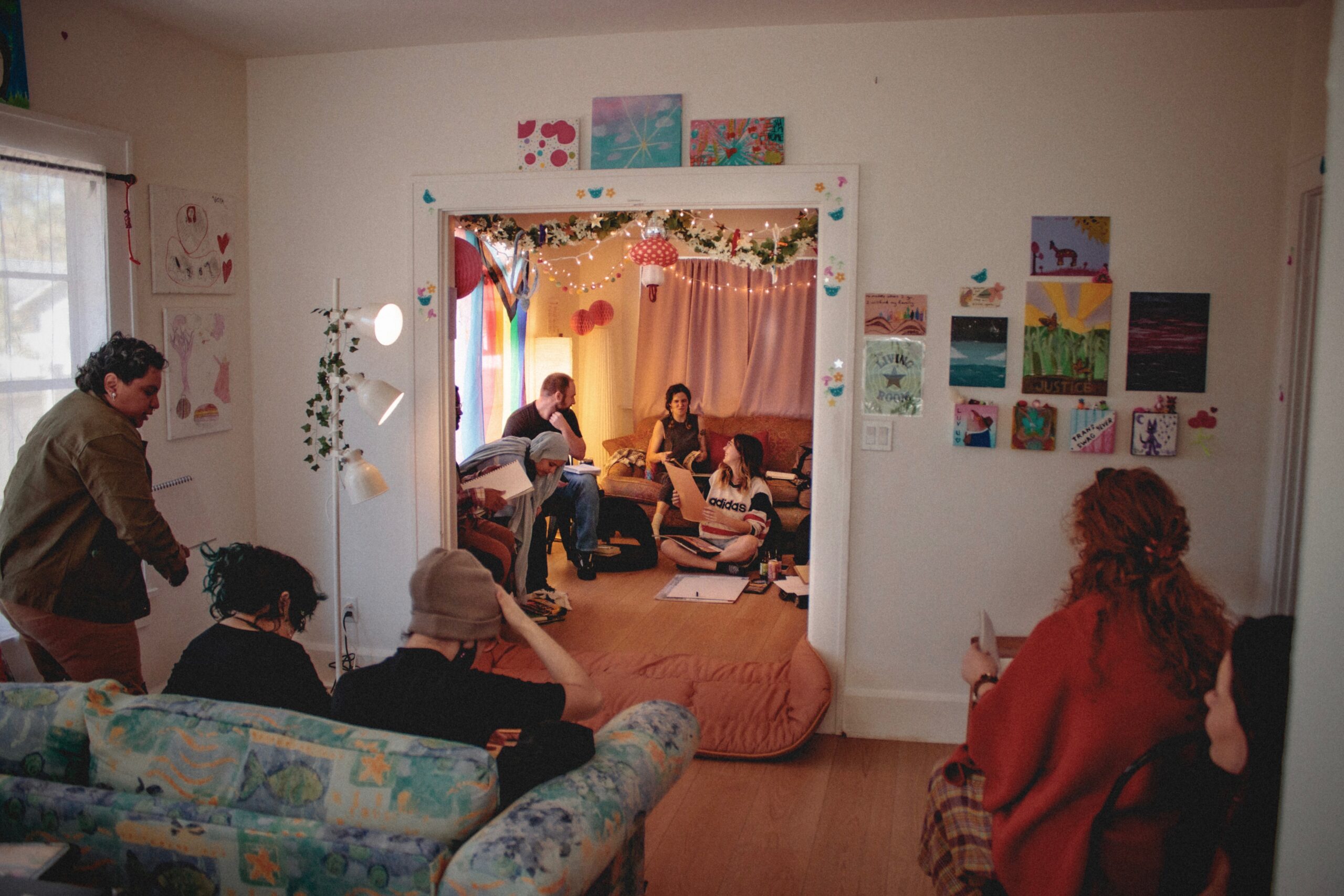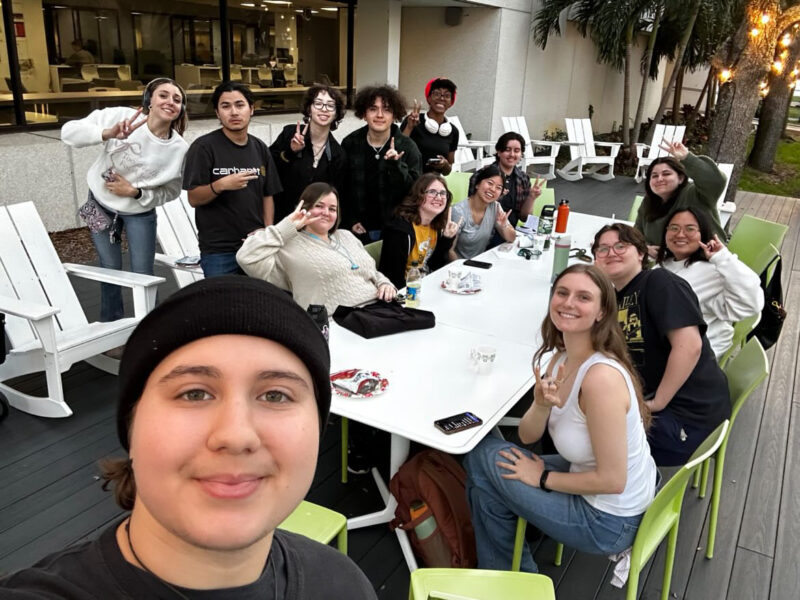
On a late night 80 years ago, David Himmelfarb Sr. was riding the train home with his prized doctoral dissertation tucked in a bag beside him. He succumbed to his fatigue and dozed off.
He awoke to find a thief had stolen the dissertation. He had worked tirelessly for years organizing material, revising his ideas and editing, but now he was staring at a terrifying empty space instead of the crown of his labors.
Studies mean a great deal to every generation of the Himmelfarb family. David Himmelfarb, an anthropology professor at USF St. Petersburg, has dedicated his doctoral dissertation to his grandfather and mentor David Himmelfarb Sr., who lost his dissertation to theft 80 years earlier.
“The writing of a dissertation requires more than grueling labor, which is taxing enough; it also demands a part of the soul. It was his life-long dream,” Himmelfarb said.
Grandfather Himmelfarb loved learning. He was a scientist, engineer, master rope-maker and tireless tinkerer who began playing the violin at 80 years old. Grandfather, son and then 6-year-old grandson Professor Himmelfarb would practice the violin together. To compensate for arthritis and tremors in his right hand, Grandfather Himmelfarb created a homemade handle made of paper clips, rubber and superglue.
“My grandfather had a great influence on me,” said Himmelfarb, who was named after his grandfather. “When I was an adolescent he would amble down every morning and awake me at 5 a.m. to tutor me in Latin.”
Though Professor Himmelfarb did not consider himself academically gifted, his grandfather inspired him to love learning. While attending Roxbury Latin High School in Boston, he decided to become an anthropologist. He went on to Cornell University where he acquired his bachelor’s degree. Upon being accepted into a scholastic program for environmental anthropologists, he transferred to the University of Georgia as a graduate student.
While pursuing his Ph.D, Professor Himmelfarb traveled extensively. He completed an internship in biological reserves in Ecuador, lived in Fiji and Vietnam, and performed ethnographic research in Samoa on social change and deforestation. Because of his interest in conflicts between governments’ national park efforts and indigenous peoples, he chose Mount Elgon in Uganda as the doctoral research site.
“It was serendipitous that I chose Uganda, because it just so happened that it had a lot of national parks from which I could choose to conduct my research,” said professor Himmelfarb. It was his research at Mount Elgon, an extinct volcano that rises 10,000 feet above the plains on the Uganda-Kenya border, that his dissertation was based on.
“David loves teaching,” said Jessie Fly, Himmelfarb’s wife, who is also an anthropologist. Professor Himmelfarb currently teaches at USFSP, Eckerd College and Hillsborough Community College in Tampa. A fierce advocate and friend to people and animals, he and Fly adopted two cats, George and Theo, who replaced a cat that ran away.
“We adopted both cats because we didn’t want to split them up because they had been raised together,” he said.
Even though Grandfather Himmilfarb’s dissertation was stolen, he benefited from the poetic justice of having his name memorialized on the dissertation of his grandson, professor David Himmelfarb Sr.


